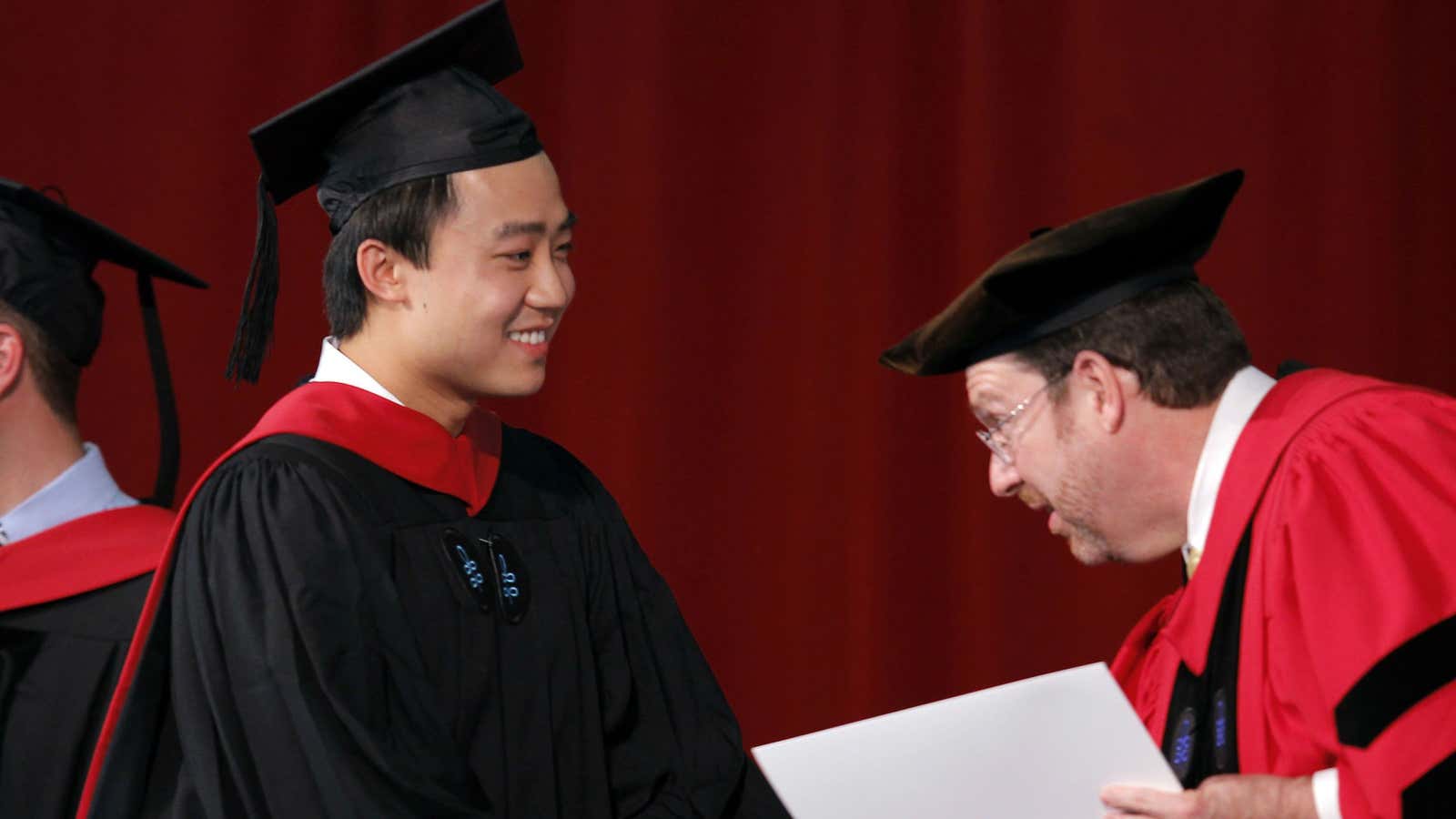An editorial in the Chinese financial magazine Caixin points out another potential obstacle for Asian Americans trying to get into college: hundreds of thousands of wealthy Chinese students that are flocking to US schools every year.
American universities, especially elite schools, have been suspected of admitting a disproportionately low number of Asian American students given their high test scores and academic performance. Over the past five to six years, these schools—faced with less private and public funding—have also started depending on international students who pay full tuition to pick up the bill. “Asian Americans now face a double barrier to entry at US universities,” writes the Caixin author Wu Yuci.
Of this pack of international students, Chinese nationals are leading the charge. As China’s economy has developed, more wealthy families are choosing to send their children to American schools. (The daughter of current Chinese president Xi Jinping attends Harvard under a pseudonym, and the son of deposed Chinese official Bo Xilai attended Columbia and Harvard.)
The country has overtaken Japan, Taiwan, and India—previous major exporters of international students. Last year, China was the top sender of international students to the US for the fourth year in a row (pdf). Still, that these students are posing a threat to US students isn’t clear cut. The number of Chinese students pales in comparison to the overall population of Asian Americans enrolled in universities:
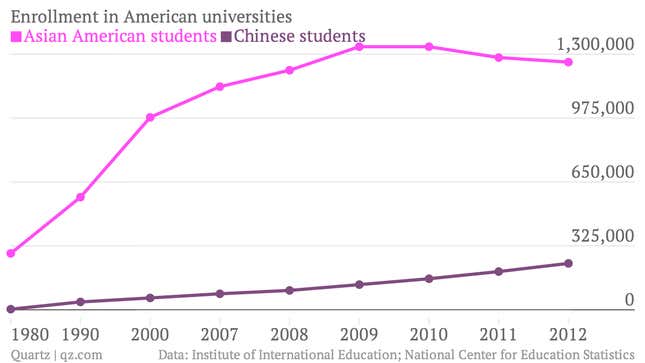
At the same time, the trajectory of the two groups couldn’t be more different. Even though Asians form the fastest-growing minority group in the US, their enrollment in US schools stopped increasing in 2009 and has started to fall off. And over the same period, enrollment among Chinese nationals has spiked.
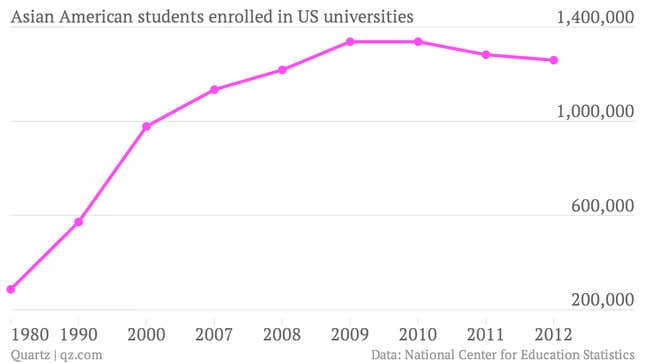
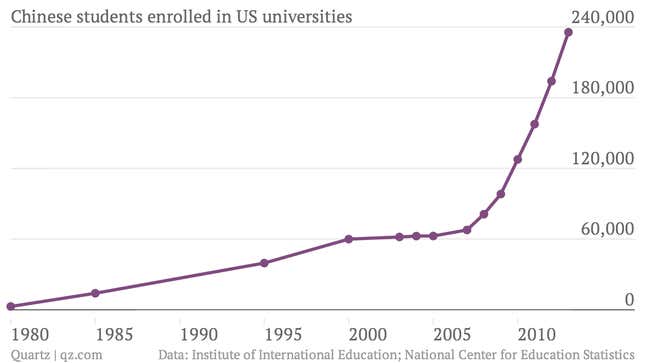
Enrollment data at elite universities is perhaps the most suspicious. Despite the fact that Asian Americans are scoring higher than ever on the SAT and majority Asian high schools are the country’s top schools for scores on the SAT and ACT, enrollment at most of the best American colleges has either plateaued or fallen.
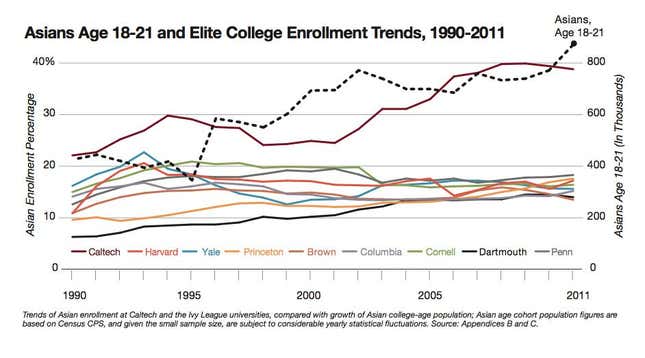
At Harvard University, which has faced various charges of bias since the 1990s, the absolute number of enrolled Asian American students has risen about 33% to 3,595 in the fall of 2012, from 2,696 in 1994, according the National Center for Education Statistics. But their percentage of enrolled full-time students has fallen from 20.6% in 1993 to about 16.5%,for much of the past decade, according to the American Conservative.
In contrast, the number of Chinese students enrolled at top schools has grown. Chinese enrollment has more than tripled over the same period, from 196 to 686, according to university enrollment numbers (pdf, p. 1).
Many colleges may not treat Asian Americans interchangeably with Chinese nationals. But underrepresented minorities overall still face competition from wealthy Chinese students. “The difference between those Chinese nationals and many American applicants, Asian and otherwise, is that the former can pay their way and the latter will often need institutional aid to do so,” says Andrea van Niekerk, a college admissions consultant. “I think that is why many American kids of all ethnic backgrounds who share the burden of needing financial aid, are at risk of being squeezed out by rich Chinese applicants.”
